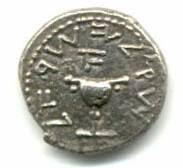I just received a jury verdict on behalf of my client, after a two day trial, for the entire amount demanded, $160,000.
This was for a breech of contract case where defendants were seriously hosing my client, not only buying his business for very favorable terms but doing the deal in such a convoluted way that he stood to risk not getting anything at but the initial payment for the business.
The lesson my client has learned from this is that its better to have a lawyer review the deal up front rather than have to go to court later - no ehtical lawyer in the world would have let him go forward with this deal. The defendants drafted the contract (and had assistance from a lawyer or at least a legal secretary who um, was somewhat shady to say the least), which specified the sale was to be for $210,00 with 100k up front and 110 to be paid under a promissory note (without interest!) to be paid monthly as the revenue from the business permitted. My client was only paid 50k at the closing and told he'd get the other 50 in a week.
Oh, did I mention my client does not read english and only speaks it somewhat, and that he was relying on the other side to be truthful? Thankfully defendants messed up and had an integration clause to the contract, which precluded them from claiming all sorts of riddiculous allegations and side agremeents that they claimed occured but did not make any sense.
At the trial Defendants made two mutually exclusive arguments - The first was that they had paid my client 50k in cash at the closing in addition to the 50k they paid by check, and that they had paid the remaining 110k already. The second argument was that they claimed the revenue of the business did not permit the payments so they didn't have to pay under the promissory note and therfore did not owe him the 110K.
Anyone see the obvious contradiction between those arguments?
After I took the direct exam of their accountant and explained to the jury that the business in the two relevant years had the following amounts in cash: In 2003 it had 68,000 in cash at the end of the year and the business had bought a $80,000 Dodge Viper. Interestingly the business claimed on the tax forms that the Viper was solely and 100% for business use - but on the stand Defendant 1 first said it was just for the business but then admitted that he had exported it to Lebanon for a personal trip and had reimported it back. Hopefully the IRS will catch on to this guy's shennanigans (He's already in serious criminal trouble with some other federal agencies so the IRS may as well join in).
In 2004, the business ended the year with a cash entry of over $244,000 - certainly enough to at least make monthly payments under the proimissory note and even to pay it off fully.
Then the icing on the cake. Defendant 1's attorney for his closing argument says (slightly paraphrased):
'This is a case about credibility and figuring out what makes sense and who is telling the truth. Now I can't tell if my client is telling the truth or if plaintiff is telling the truth but you need to decide on what makes sense.'
Note to the aspiring lawyer out there - never tell a jury you can't tell if your client is being truthful, even if, as I suspect the defendant's lawyer knew in this case, that you know your client is lying. This other lawyer by the way was much more experienced than I was and really should have known better than to make this kind of a closing argument.
All in all, an excellent victory. It was again nice to be working on behalf of a client that I knew was the one being victimized and taken advantage of, and yes, my client was telling the truth and the jury clearly saw that.
Thursday, May 24, 2007
Subscribe to:
Post Comments (Atom)

No comments:
Post a Comment